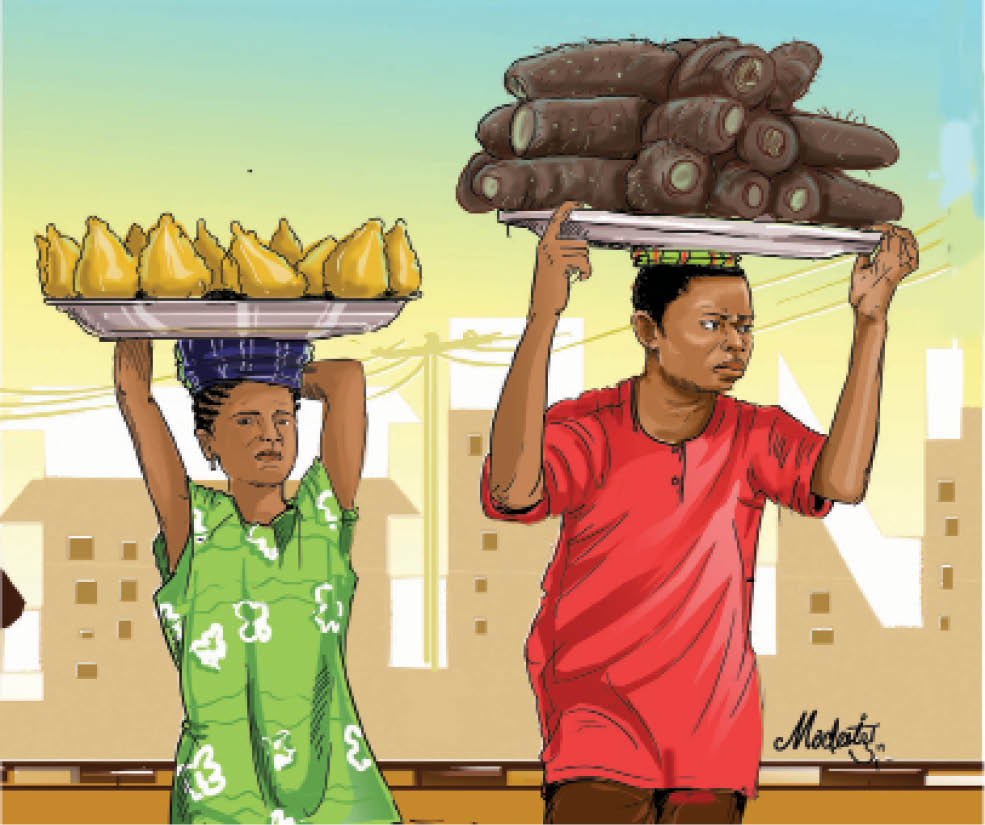I once attended an event that kept me until late at night. While going back home around 8:30, there was this young girl of about 10 or 11 years, who was running helter-skelter in order to catch up with cars so as to sell her sachet water mindless of a possible accident which may likely end her life talk less of the possibility of either being kidnapped or raped.
But then, how many of such children must have been killed in a motor accident or actually kidnapped, raped or trafficked? According to United Nations Children’s Fund( UNICEF), nearly 1 in 10 children are subjected to child labour worldwide, with some forced into hazardous work through trafficking.
- APC holds state congresses today
- #EndSARS: NEC warns against fresh protests, to prosecute erring policemen
Child labour is not strange to every Tom, Dick and Harry in this part of the world because saying it is practiced in Nigeria will amount to nothing other than an understatement. But in the real sense, it is not just peculiar to Nigeria as it is seen and practiced in other parts of the world, although, with different levels and percentage.
The emergence of COVID 19 has brought about an increase in child labor. Statistics shows that roughly 160 million children were subjected to child labor at the beginning of 2020, with 9 million additional children at risk due to the impact of COVID-19.
According to International Labor Organization (ILO), the term “child labour” is often defined as work that deprives children of their childhood, their potential and their dignity, and that is harmful to physical and mental development. It refers to work that is mentally, physically, socially or morally dangerous and harmful to children; and/or interferes with their schooling by depriving them of the opportunity to attend school; obliging them to leave school prematurely; or requiring them to attempt to combine school attendance with excessively long and heavy work.
The worst forms of child labor involves children being enslaved, separated from their families, exposed to serious hazards and illnesses and/or left to fend for themselves on the streets of large cities often at a very early age
The latest ILO global estimates on child labor indicate that Africa has the largest number of child laborers; 72.1 million African children are estimated to be in child labor and 31.5 million in hazardous work.
The outrageous part of this is the fact that many of these children follow strangers to strange and dangerous places which may likely endanger their lives to beg for alms.
One of the causes of child labor is poverty. Since unemployment is on the rise, the aftermath is poverty and this explains why there are many professional beggars on the street. Parents who even have one or two children can hardly feed them talk less of those who have numerous children. Since these parents are unable to cater for their children, it becomes expedient for the children to fend for themselves and hence, child labor.
Also free education is not compulsorily accessible to all. Many children who are interested in getting educated either hawk or go to work early in the morning before going to school so as to get themselves their learning materials and also pay their school fees. Up till now, the government keeps advertising free education which is not actually free. Many parents cannot even afford the advertised free education and end up engaging their children in child labor. Yet, the majority of the leaders enjoyed free education with other benefits attached in their own days.
Research shows that 30 million children live outside their country of birth, increasing their risk of being trafficked for sexual exploitation and other work. Family size also leads to child labor. Africans are fond of marrying many wives and giving birth to many children they cannot nurture and when poverty knocks on their doors, they end up sending their children to far places either to their relatives or places where they can start working and fending for themselves as house helps or factory workers.
Child labor can be minimized if there is an active government that has the interest of the people in mind. Some of these children work in order to support themselves. Since the government advertises free education, they should ensure that education is free indeed and Non Governmental Organizations (NGOs) which are working towards alleviating poverty should be fully supported.
Adeparua Damilola writes from Lagos

 Join Daily Trust WhatsApp Community For Quick Access To News and Happenings Around You.
Join Daily Trust WhatsApp Community For Quick Access To News and Happenings Around You.


